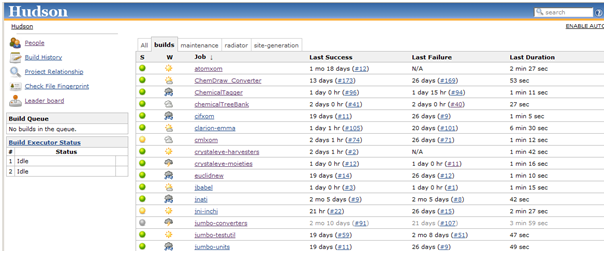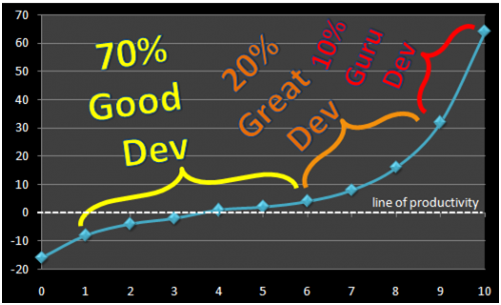Typed/scraped with a slightly dodgy keyboard into Arcturus
[I have been catalysed to write an apologia. An Apologia is the defence of a position, not a plea for forgiveness. See http://en.wikipedia.org/wiki/Apologetics ]
I have just discovered that the Techrights blog has been following this blog, and particularly the discussion on the BL. I haven’t read back-issue posts and so may not address all the points that Techrights have covered. I take Techrights very seriously and clearly have a great deal in common. I expect to come back to this discussion so the current reply is a first pass. This post sets out the basis of my position on various aspects of Openness. As with any single human I have imperfect knowledge of the issues and I have to make personal judgments and trade-offs – I do not have the clarity of purpose of a Gandhi.
Techrights specifically concern my Microsoft connection:
http://techrights.org/2010/05/15/british-library-and-trust/
Posted in DRM, Europe, Intellectual Monopoly, Microsoft at 6:28 am by Dr. Roy Schestowitz
Summary: An open access hero asks whether or not he should work with Microsoft; Techrights responds
“Should I work with Microsoft?”
That is the question asked by Peter Murray-Rust, who sought a reply from readers. We’ll come to this in a moment, right after providing some background.
“Microsoft loves artificial scarcity, on which its entire business model is built.”Peter Murray-Rust is an admirable person and a high achiever. He is at the forefront of the open access (OA) movement and he advocates strongly the sharing of knowledge. Here at Techrights we have great respect for this man, but circumstances at work seem to have led him to the biggest enemy of open source (and by extension one of the principal foes of OA).
PMR: An important technical clarification. In my own area of chemistry I identify four separate (orthogonal) areas. In general they are all subsumable into Open Knowledge. In the Blue Obelisk (http://www.blueobelisk.org ) of which I am a founder member we concentrate on three in chemistry: Open Data, Open Source, Open Standards (but not Open Access, primarily for pragmatic and historical reasons)
- Open Access. This is the philosophy and practice that the fruits of scholarship (primarily academic research, and emphatically publicly funded research) presented in “full-text” manuscripts and articles should be available to every person on the globe on a FaiF (free as in freedom) basis. In general there is a near-zero cost of delivery in electronic form, so these are also FaiB (free as in beer) at point of access. I support Open Access and work specifically with Open Access pubklishers such as BiomedCentral, Public library of Science, and the International Union of Crystallography (which publishes several thousand Open Access articles each year alongside closed ones). Open Access has different models (e.g. Stevan Harnad’s “green” self-archiving FaiB against the above publishers’ CC-BY FaiF). On a pragmatic basis I favour FaiF OA publishing and do not believe thqt FaiB is very useful in science [note – this will probably trigger a reply from Stevan who argues that the whole academic world should go green FaiB and only then should be address rights and re-use]. So my activities in OA are primarily confined to urging publishers to move to FaiF and CC-BY (and avoid CC-NC and CC-SA at all costs). In so far as Open Data overlaps with OA I am often invited to OA meetings.
- Open Source. Most chemical computations are done with closed source. Some of the companies are at least as monopolist as MS. For example it is widely accepted that one leading company will sue any user of their software if they report bugs in public or publish benchmarks. I will not name them for obvious reasons. I believe that the closed source practice has seriously retarded chemistry, often leads to bad science (as the algorithms are not public or reproducible) and leads to a culture of supine mediocrity. As a member of the editorial board of BMC’s J. Cheminformatics I am trying to change the approach to closed systems – I have yet to carry a majority of the editorial board with me. The Blue Obelisk is working to replace the closed source inchemistry with Open Source as we believe this leads to better science – there is encouraging evidence that our software has overcome a 15-year backlog of closed source stagnation and is now competitive with closed source offerings. The main enemy is the public apathy of the pharmaceutical industry which continues to use closed source software, primarily through inertia.
- Open Standards. This relates to the requirement that the specifications for our information is openly available. In chemistry it’s very messy as the closed source has left a serious mess of “de facto” specifications which are semi-proprietary. My own contribution (with Henry Rzepa) has been to create an Open Standard for chemical information (Chemical Markup Language, CML) – this is relevant later.
- Open Data. This is my top priority and one that gaining a lot of attention. 4 years ago the term was virtually unused – now it is ubiquitous. In my case it is the requirement to make available the data that supports a scientific paper (e.g. climate measurements, genome sequences, etc.). It is very unusual in chemistry to make data specifically Open FaiF and that is why we have developed the Panton Principles instrument for specifying this. Note that Open Data is bitterly opposed by major players in chemistry such as the American Chemical Society. When the quasi-FaiF pubchem service was started by the NIH, the SCS lobbied congress to have it shut down as unfair competition. So I have to deal with monopolists at all levels.
Peter Murray-Rust is currently pressuring the British Library to drop DRM. What he may or may not know is Microsoft’s role in opposition to his goals. What Microsoft is doing to the British Library is a subject that we covered some days ago (citing Peter Murray-Rust six times in the process). We quoted Microsoft’s CEO as saying that “DRM is the future.” One article worth reading comes from Forbes Magazine (2007) and bears the title “Microsoft: We Like DRM”.
I will address this in a later post after I have read the arguments.
By this point, we pretty much get the picture. Microsoft loves artificial scarcity, on which its entire business model is built.
Peter Murray-Rust continues his fair and balanced struggle to rid the British Library of DRM. He speaks to an ex-Adobe person:
[… posted earlier on this blog …]
This is excellent stuff.
As we pointed out on some past occasions (11 separate posts in Techrights cite his blog), Microsoft occasionally works with Peter Murray-Rust’s employer or affiliates
[PMR: for the record. I used to be employed by the University of Cambridge which has accepted considerable donations from Microsoft and also allowed Microsoft Research to be located on the West Cambridge University site. I now am employed by Churchill College in the University of Cambridge, but continue to accept the moral responsibility of working within a University which has accepted MS funding.]
, which makes it hard for him to have Microsoft estranged. Very recently he published this post which asks, “Should I work with Microsoft?”
[… PMR snipped]
Let it be clarified that Microsoft is probably worse than before. It just employs a lot of PR agencies to embellish its image and bury criticisms. We have given a very large number of examples and it would require a long time to assemble a long list that convinces the reader/observer (a lot of unethical PR efforts, propaganda, bribed bloggers, and AstroTurfing as exemplified in the previous post are partly documented).
Microsoft’s latest strand of offences is racketeering [1, 2, 3, 4, 5, 6, 7]. People must not be misled by memes like “new Microsoft” because this new Microsoft is more aggressive than ever and more dishonest about its intentions (it’s part of the PR spiel, along the lines of a green BP logo or Blackwater changing names).
No proponent of OA should befriend Microsoft. To repeat what we wrote yesterday, “dissociation from Microsoft is a survival skill, not intolerance.” █
PMR: I shall read these and then comment. It may not be immediate. I have no first-hand knowledge of Microsoft’s involvement in the BL’s DRM (if any). I do know they are working with the BL on research information systems. However I regard DRM as a potentially serious problem.
In my own area the issues are intertwined. Microsoft is funding Chem4Word in our grouop which from the start was planned to promote Open Data and Open Standards (in chemistry). We acknowledged it was a hybrid in that it relies on a closed source platform (.NET). It can be argued (and I would be convinced by sales figures) that it helps to sell Microsoft systems in chemistry. During the project Microsoft agreed that the whole of the Chem4Word project (though not the underlying .NET, of course) would be Open Source and this has now available at Codeplex. The primary document standards that the project uses are Chemical Markup Language and OOXML (whose genesis has been heavily criticized, but is an ISO standard. The route to many accepted current political positions in the world has often not been pretty).
In principle, therefore, it is possible to take the current Chem4Word software with WITHOUT Microsoft’s permission (or ours, as it is FaiF) and port it to another platform. I do not have the time or resources but would be delighted to help those who might.
Finally I have made it clear to my immediate collaborators in Microsoft that their funding does not reduce my ability to speak my mind on any issue.




